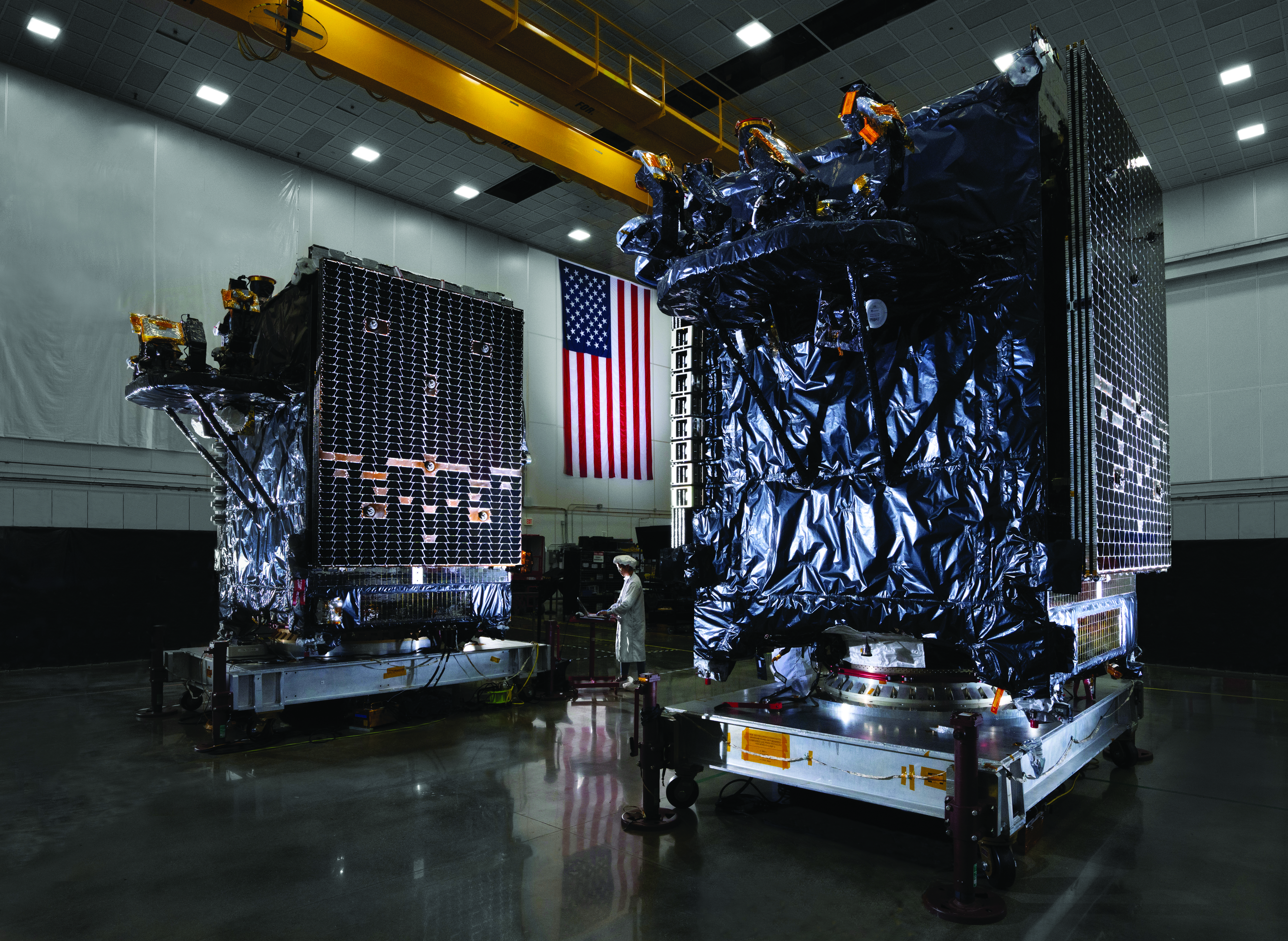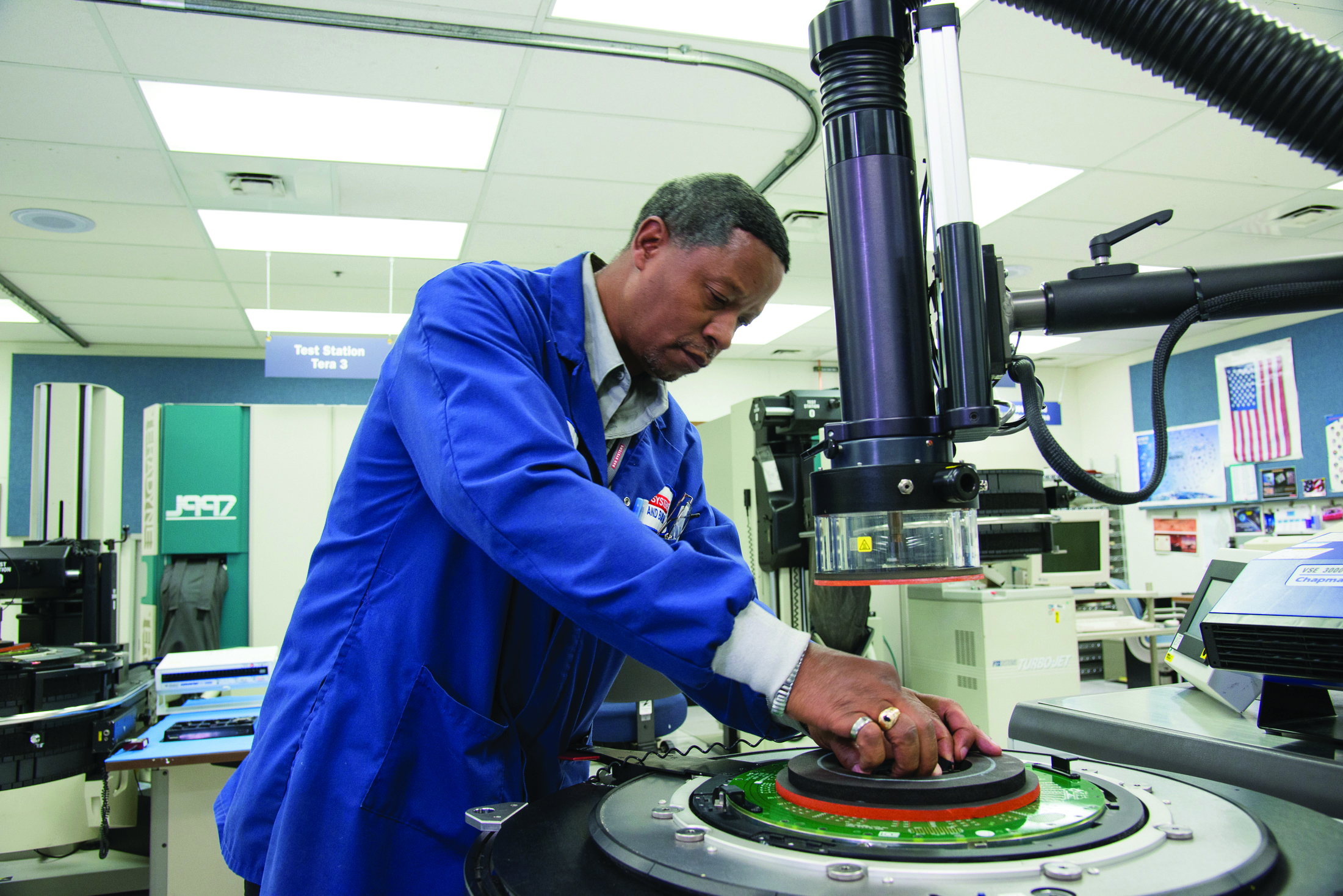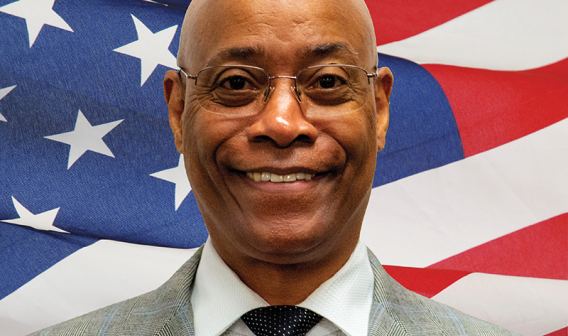Strong Partnerships Fuel Virginia’s Aerospace Ecosystem

Northrop Grumman Innovation Systems, Loudoun County
The global aerospace industry is reinventing itself, with innovation spanning materials, engineering, and a more expansive vision for how we take to the skies. Virginia sits at the heart of this transformation as a breeding ground for ingenuity. From pioneering aerospace business accelerators to the testing grounds for the latest ideas in space travel, the Commonwealth is home to more and more industry leaders in the evolving aerospace sector.
Perhaps nowhere is this truer than at the Virginia Spaceport Authority’s (VSA) Mid-Atlantic Regional Spaceport (MARS) on Wallops Island on Virginia’s Eastern Shore. A tenant of the NASA Wallops Flight Facility, MARS has grown significantly since its first launch in 2006. The spaceport features three launch pads, with a fourth under construction, and a payload processing facility that collectively enable the launch of small and mid-class rocket systems and testing for unmanned aircraft.
Government and private organizations find VSA provides reliable, cost-effective, and mission-capable space access. Texas-based Firefly Aerospace cited the spaceport’s reliable support for rapid launch and minimal congestion as its reason for launching from MARS. In June, Firefly announced its plans to launch its two-stage orbital Alpha rocket from Wallops. The rocket will provide on-demand deliveries of up to 1,000 kilograms for commercial, civil, and national security missions.
Fulfilling Federal Priorities
Firefly joins longtime MARS client Northrop Grumman Innovation Systems, which has launched a number of resupply missions to the International Space Station (ISS) from Wallops Island under its contract with NASA. For a decade, the Falls Church-based aeronautics and defense company’s Cygnus spacecraft has delivered payloads that sustain life and research aboard the ISS.
Companies like Northrop Grumman that are pushing the envelope on space travel find they benefit from the work of research organizations located in the Commonwealth. Those resources include The Aerospace Corporation, which operates the only federally funded research and development center committed exclusively to the space enterprise. In early 2024, the organization moved its headquarters from California to Fairfax County in order to deepen ties with key stakeholders and partners, including NASA, the Department of Defense (DoD), and the intelligence community.
“Moving our leadership headquarters to the D.C. area allows us to be alongside key decision-makers so that Aerospace can best integrate across the entire space enterprise as it grows and evolves,” said John Galer, chief of government relations at The Aerospace Corporation. Alongside these partners, the nonprofit conducts research advancing space exploration technology, addressing challenges facing commercial space flights, and enhancing the safety of future space missions.
Aerospace is also helping to develop a workforce prepared to advance space innovation. The organization works with partner companies to grow best practices around diversity in engineering and prepare a young workforce to meet the needs of space missions for generations to come.
“Our locations at Aerospace are strategically placed to allow us to hire the best talent in the country,” Galer said. “In Northern Virginia, we can hire those with deep experience at our customer organizations and tap the deep technical talent pool surrounding the defense, civil, and commercial space communities that reside right here in our backyard.”

BAE Systems, Inc., Fairfax County
An Ideal Location for Government Partnership
As Aerospace has found, Virginia’s strength in resources and proximity to government partners have fueled investment among similarly mission-focused companies. In the past decade, Virginia has seen the introduction of nearly 70 aerospace and unmanned system projects representing more than $865 million in investment.
The Commonwealth’s tech talent and proximity to federal clients have also enabled growth of the Dulles Technology Corridor, described by The Atlantic as “the Silicon Valley of the East.” Those factors have attracted aerospace leaders such as Airbus Americas, BAE Systems, Booz Allen Hamilton, General Dynamics, Parsons Corporation, Peraton, and Rolls Royce North America. They’re supported by a thriving aerospace ecosystem, including suppliers like space electronics provider Trident Systems, which was selected as a Northrop Grumman subcontractor for 14 Space Development Agency tracking satellites in 2023, and announced an expansion in Fairfax County earlier in 2024. Another supplier, satellite communications company SpaceLink, expanded in Fairfax in 2021.
“As an innovative space company, we have the opportunity to draw from the rich pool of talented technology and business professionals who are drawn to the region for its opportunities and dynamic environment,” said SpaceLink CEO David Bettinger. “Northern Virginia is an important hub for the aerospace and defense industry, which makes it a great fit for SpaceLink’s corporate headquarters.”
As an innovative space company, we have the opportunity to draw from the rich pool of talented technology and business professionals who are drawn to the region for its opportunities and dynamic environment. Northern Virginia is an important hub for the aerospace and defense industry, which makes it a great fit for SpaceLink’s corporate headquarters.
Defense contractors such as CACI International, Leidos, and SAIC leverage this location to support aerospace partners, and companies across the Fairfax aerospace ecosystem are taking steps to capitalize on their presence. In 2024, Israel Aerospace Industries (IAI) picked the Dulles Technology Corridor for the site of its first U.S. innovation center. From its Herndon facility, the organization seeks to foster cooperation between local startups in the aerospace sector. Through its five-month business accelerator program, IAI hopes to develop new technologies that push boundaries in the areas of trusted AI, quantum science, sustainability and energy, and space.
Innovating With Virginia Research
Among the beneficiaries of IAI’s program is MELD Manufacturing. The Montgomery County-based company recently received a $1 million grant from the U.S.-Israel Binational Industrial Research and Development (BIRD) Foundation to develop large civil aviation components utilizing additive friction stir deposition technology. This technology, born out of research from the Virginia Tech College of Engineering’s Advanced Manufacturing Team, uses large-scale metal 3D printers to rapidly produce large metal components. By using stronger, lighter materials, engineers can reduce the amount of energy required to power the next generation of air and spacecraft. MELD notes that the melting process it uses enables it to produce fully dense components that increase strength while reducing material costs.
As MAG Aerospace President Matt Bartlett said, “Being in the technology corridor, close to major offices for technology and defense companies, helps facilitate business development.”
From its headquarters in Fairfax County, MAG serves commercial clients around the globe, but most of MAG’s business is with the federal government. The company was founded in 2010 to provide intelligence, surveillance, and reconnaissance (ISR) capabilities, but has since expanded to serve as a technology integration company that specializes in developing innovative solutions to deliver data that gives customers decision superiority.
Military Connections and Experience
Federal clients include the U.S. Army. Through a partnership with L3Harris Technologies, MAG is equipping Bombardier Global 6500 aircraft with the most modern ISR sensors that will enable the rapid collection and data delivery of operational intelligence for the Army. The Army’s Theater-Level High-Altitude Expeditionary Next Airborne ISR-Radar (ATHENA-R) program aims to ensure battlefield commanders are equipped with actionable intelligence. MAG notes that the project benefits from its experience operating around the globe and from the work of its experienced teammates. For many of the company’s communications and software engineering professionals, that includes military experience.
“We pride ourselves on hiring veterans and supporting our veteran community. That’s a huge part of the MAG culture,” Bartlett said. The organization sources applicants through programs including Virginia Values Veterans (V3), operated by the Virginia Department of Veterans Services, along with DoD SkillBridge and Hiring Our Heroes. Through V3 certification, MAG gains access to veterans equipped with soft skills training via V3’s program for service members transitioning into the civilian workforce.
And MAG sees plenty of need to continue growing its workforce. “There’s a lot happening as we work with our customers to address the increasingly complex global threats that require the implementation of new technologies,” Bartlett said. “We’re a step ahead in implementing the latest technologies with our proven processes and techniques to deal with the threat landscape that is emerging around the globe.”
Galer agreed that the space industry “no longer comprises only a few providers who launch and fly satellites. There is now much more commercial competition and use cases for national security and other government space missions.”
Galer added that aerospace companies need to be agile to support the sector’s growing needs and help partners solve emerging challenges. A location in Virginia provides these companies a strong foundation from which to lead this technological change.




